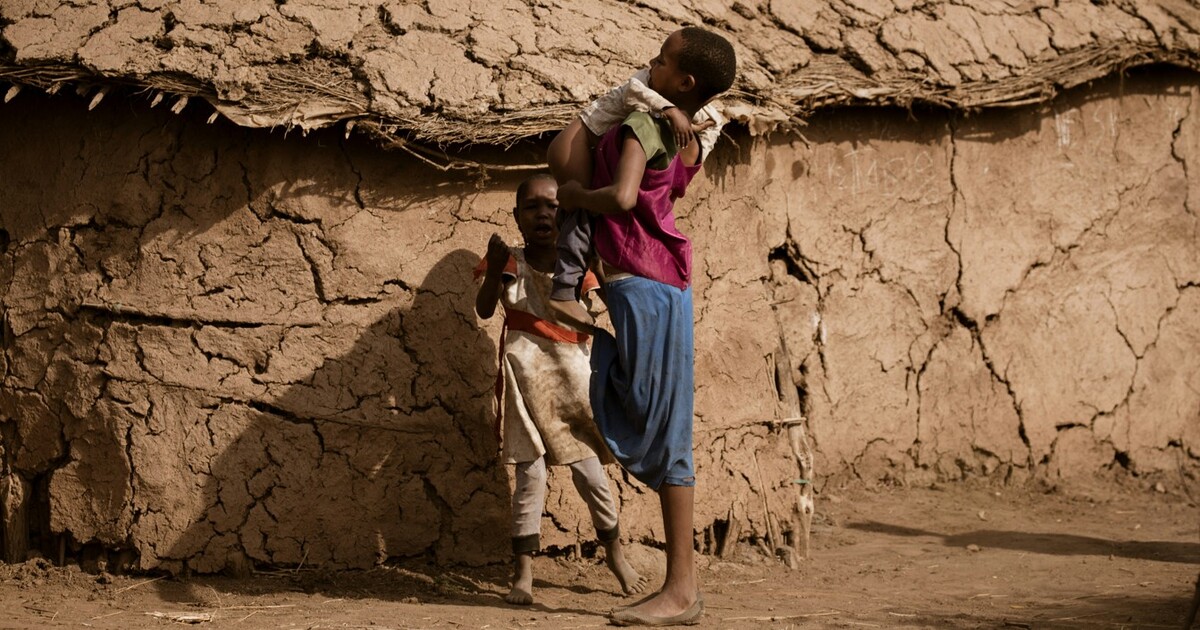The Humanitarian Crises That We Dare to Ignore
The failure of Western governments to address the humanitarian disasters and the corruption fueling conflicts in Africa is as short-sighted as it is tragic.
June 18, 2025

A Strategic Assessment Memo (SAM) from the Global Ideas Center
You may quote from this text, provided you mention the name of the author and reference it as a new Strategic Assessment Memo (SAM) published by the Global Ideas Center in Berlin on The Globalist.
I cannot get out of my head a comment that Bill Gates made recently in a Financial Times interview: “The picture of the world’s richest man killing the world’s poorest children is not a pretty one.”
Gates was calling out Tesla’s Elon Musk, who, acting as President Trump’s “efficiency” czar, had bulldozed the U.S. Agency for International Development (USAID).
One of the results, according to Charles Kenney at the Center for Global Development, is that proposed U.S. budget cuts for humanitarian assistance from $8.8 billion to $2.5 billion, “could lead to 675,000 additional deaths from HIV, and a combined 285,000 deaths from malaria and tuberculosis.”
Sudan’s genocide
This is just a fraction of Trump’s callousness. The demise of USAID has added to the world’s greatest current humanitarian disaster. According to the latest report by the Famine Early Warning System Network (FEWS), more than 20 million people in Sudan face “famine” – the highest level of distress categorized by the FEWS Network.
In Sudan, where contributions from the United States accounted for 45% of all humanitarian funding in 2024, cuts to nutrition programs, general food assistance and community kitchens are undermining the capacity to save lives. Two decades ago, Darfur saw genocide. Now, it is seeing it once more.
One cannot blame Musk and Trump alone or the Republican majority in the U.S. Congress that is rubber-stamping Trump’s budget cuts.
As the International Rescue Committee notes: “Millions of people are at risk as countries like the United States, Germany and the UK reduce aid spending for the world’s most urgent humanitarian crises. Life-saving services are being slashed, putting the world’s most vulnerable communities at risk.”
More serious than ever
I served for nine years as the spokesman for the World Bank and know how often “experts” call for “extremely urgent” action to counter humanitarian crises. The situation right now is, however, more serious than at any time that I can recall in recent decades.
The world’s media, which played such a vital role in the 1980s in arousing public support for relief for the famine then sweeping across Ethiopia, is largely ignoring current catastrophes — with the exception of Gaza — in Sudan, South Sudan, Yemen, the Democratic Republic of Congo (DRC), Haiti, the Sahel, Ethiopia and Somalia.
Many of the citizens of these countries face desperate conditions — from famine and widespread disease to the impact of climate change and cuts in basic services by their own governments.
“Blood gold”
As the FEWS Network points out, conflict is the leading cause of acute food insecurity. Ongoing violence displaces millions, disrupts agricultural systems and obstructs humanitarian assistance delivery. And corruption is fueling many of the conflicts.
The United Nations and Western governments are well aware that the flows of arms into the African conflict zones are being paid for in gold and other natural resources.
Weapons have been shipped from the United Arab Emirates to Sudan in support of the war in return for Sudanese gold. Meanwhile, the government of Rwanda is a major force behind the long-running war in the Congo. There, over 14 million people are at serious risk.
Amnesty International has detailed evidence of additional arms shipments to Sudan from Russia, China and Turkey. It has stressed:
“The UN Security Council must take urgent measures to stop the flow of arms and protect civilians. The existing arms embargo that currently applies only to Darfur, and which is poorly implemented and frequently violated, is completely inadequate.”
Trade dislocations and climate change
Adding to human misery, especially in the poorest countries, are prospective trade dislocations and reduced exports due to Trump’s tariffs.
In addition, many of the poorest countries face acute debt problems, forcing domestic budget cuts that hit the poorest hardest. New World Bank forecasts project slowing growth this year for emerging market and developing countries.
Then, as the FEWS Network reports, some of the hardest hit countries face severe climate change dangers, reducing agricultural output and forcing many people to flee their homes and seek refuge elsewhere.
Here too, the Trump Administration, having withdrawn from the “Paris Agreement” on international efforts to counter climate change, has turned its back on environmental science and will offer no help to those in greatest need across the world.
The Gates Foundation
I started this article with a quote from Bill Gates and his anguish can best be understood when considering the work his foundation has done and noting that the latest estimates suggest that Trump’s action could lead to 675,000 additional deaths from HIV.
Prior to Trump’s aid slashing announcements, Bill Gates wrote:
“In 2000, the year that we started the foundation, 1.8 million people died from HIV/AIDS. By 2023, advances in treatment and preventatives cut that number to 630,000.
I believe that figure will be reduced dramatically in the decades ahead, thanks to incredible new innovations in the pipeline — including a single-shot gene therapy that could reduce the amount of virus in your body so much that it effectively cures you.
This would be massively beneficial to anybody who has HIV, including in the rich world. The same technology is also being used to treat sickle cell disease, an excruciating and deadly illness.”
The actions that the Gates Foundation has taken ran alongside a remarkable program to reduce HIV deaths in Africa that was launched in 2003 by President George W. Bush and which saved an estimated 20 to 25 million lives.
Greed wins
The U.S. cuts in humanitarian aid are only partially explained by the search for budget reductions to fund relief for primarily the wealthiest Americans. President Trump has never missed an opportunity to disparage Africans and African countries.
For example, recall Trump’s glee in humiliating South African President Cyril Ramaphosa in the White House as he lamented the plight of white South Africans.
Conclusion
The failure by Western governments to fully address the humanitarian disasters and the corruption fueling some of the conflicts in Africa is short-sighted.
For example, there will inevitably be even greater numbers of Africans seeking refuge in Europe. And the United States, having abandoned the soft power of foreign aid, will alienate many governments across the world that were friends, so damaging U.S. business and security interests over time.
It is certainly laudable given the overall dismal outlook for development assistance that Gates recently announced plans to spend most of his $200 billion fortune on improving health and education services in Africa over the next 20 years.
However, the countries in Africa in need of aid have to take urgent actions of their own — most notably, to curb the widespread government corruption that has contributed to violence, conflict, economic distress and ever-greater misery for their poorest citizens.
Takeaways
The failure of Western governments to address the humanitarian disasters and the corruption fueling conflicts in Africa is as short-sighted as it is tragic.
One cannot blame Musk and Trump alone or the Republican majority in the U.S. Congress that is rubber-stamping Trump’s budget cuts. Germany and the UK are also reducing aid spending for the world’s most urgent humanitarian crises.
The world is largely ignoring current catastrophes — with the exception of Gaza — in Sudan, South Sudan, Yemen, the Democratic Republic of Congo (DRC), Haiti, the Sahel, Ethiopia and Somalia.
It is certainly laudable given the overall dismal outlook for development assistance that Gates recently announced plans to spend most of his $200 billion fortune on improving health and education services in Africa over the next 20 years.
Many of the countries in Africa in need of aid have to take urgent actions of their own — most notably, to curb the widespread government corruption that has contributed to violence, conflict, economic distress and ever-greater misery for the poorest citizens.
A Strategic Assessment Memo (SAM) from the Global Ideas Center
You may quote from this text, provided you mention the name of the author and reference it as a new Strategic Assessment Memo (SAM) published by the Global Ideas Center in Berlin on The Globalist.
Read previous

Just The Facts
California: The Numbers
June 16, 2025

